Chinese characters can often be broken up into smaller pieces, or “radicals.” These radicals can give clues to a word’s meaning and pronunciation. One of the easiest radicals to spot in Chinese is 氵 三点水 (sān diǎn shuǐ), or the water radical.
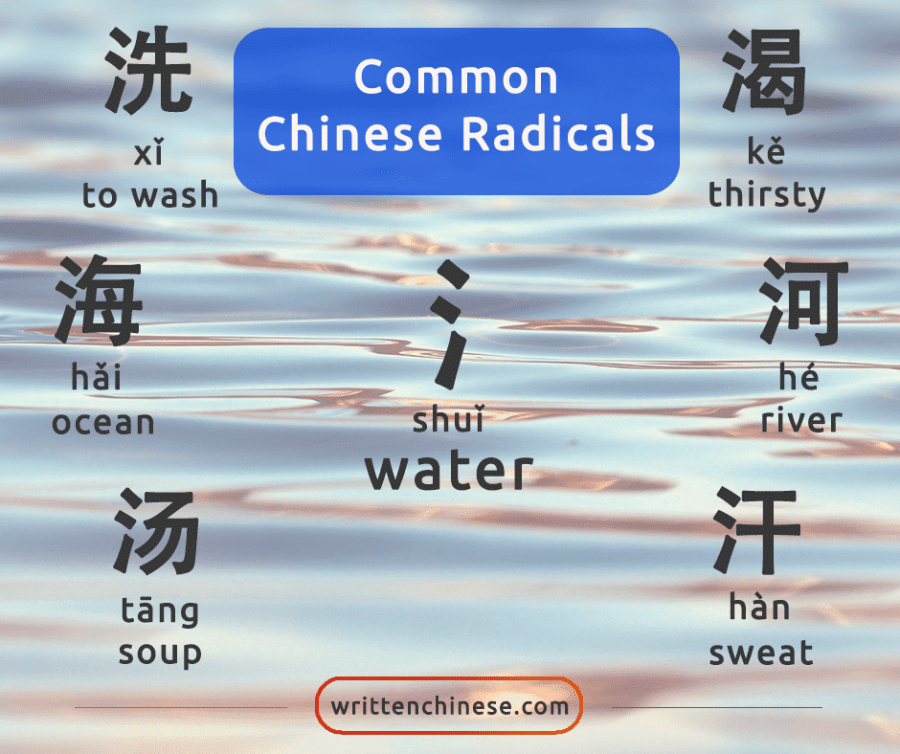
If you encounter this radical on the left side of a character, you can be almost certain that the character has something to do with water or liquid. Here are some common characters that use 三点水 (sān diǎn shuǐ):
1. 汤 / 湯 (tāng) soup / hot or boiling water 
Example: 我喜欢喝我妈妈做的汤。 (Wǒ xǐhuan hē wǒ māma zuò de tāng) I like to eat my mother’s soup.
2. 汗 (hàn) sweat
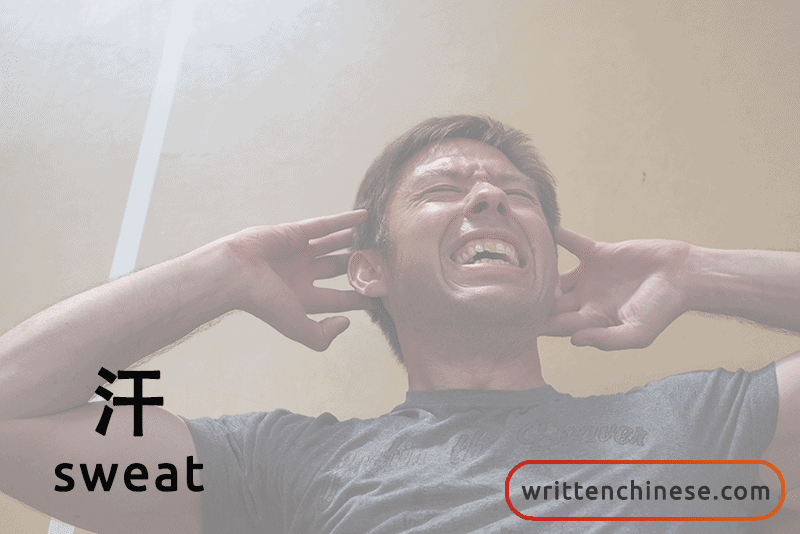
Example: 我跑完步后出了很多汗。 (Wǒ pǎo wán bù hòu chū le hěnduō hàn) I am very sweaty after I run.
3. 油 (yóu) oil / fat / grease / petroleum
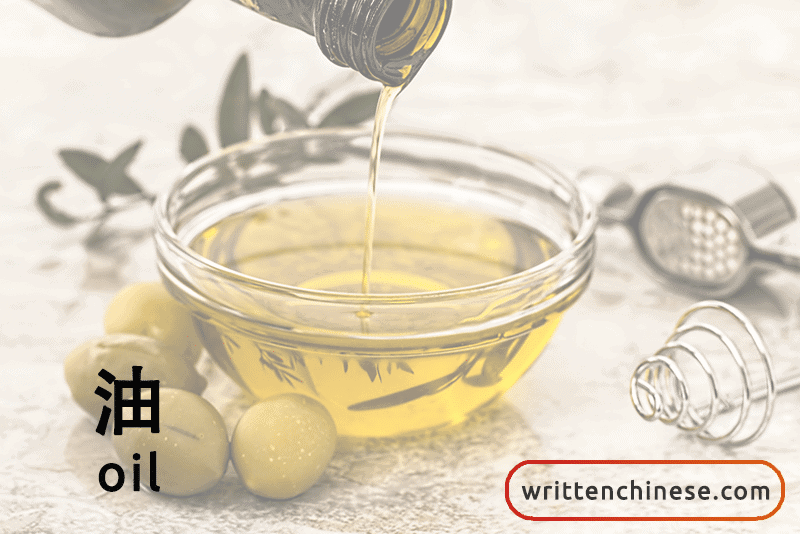
Example: 他做菜时忘记放油了。 (Tā zuò cài shí wàngjì fàng yóule) He forgot to add oil when he was cooking.
4. 河 (hé) river
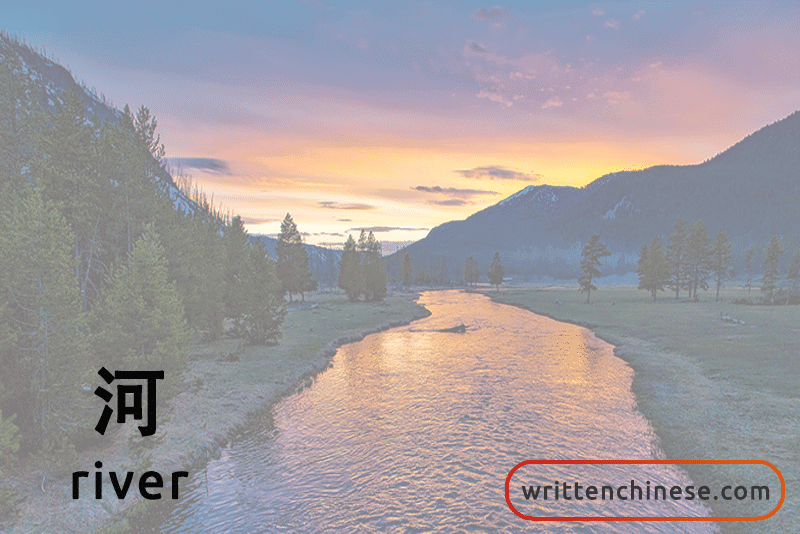
Example: 我们要过了河才能到家。 (Wǒmen yàoguòle hé cáinéng dàojiā) We need to cross the river to get home.
5. 泪 / 淚 (lèi) tears
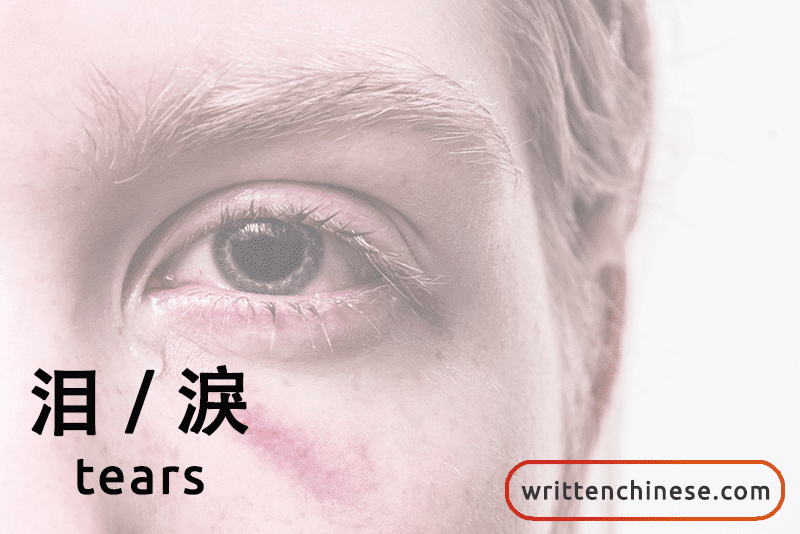
Example: 如果你是男子汉就不要流泪。 (Rúguǒ nǐ shì nánzǐhàn jiù bùyào liúlèi) Don’t cry if you are a real man.
6. 洗 (xǐ) to wash / to bathe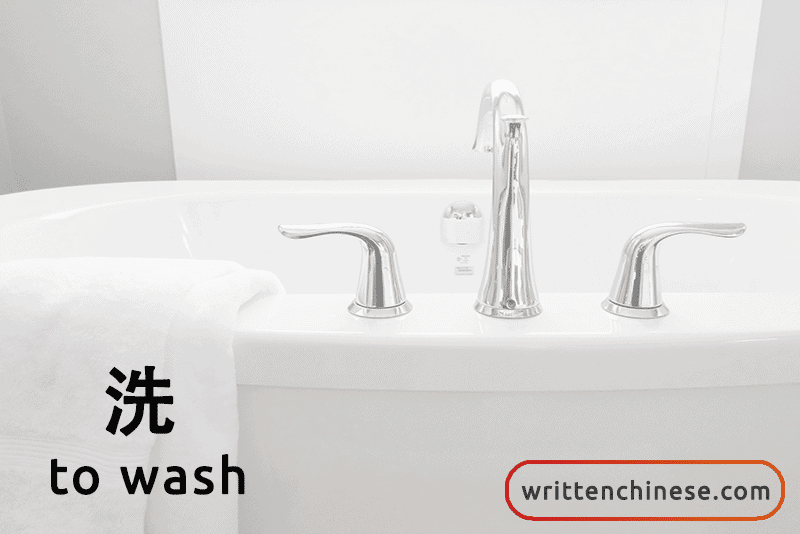
Example: 他昨天忘记洗衣服了。(Tā zuótiān wàngjì xǐ yīfule) He forgot to wash the clothes yesterday.
7. 湖 (hú) lake
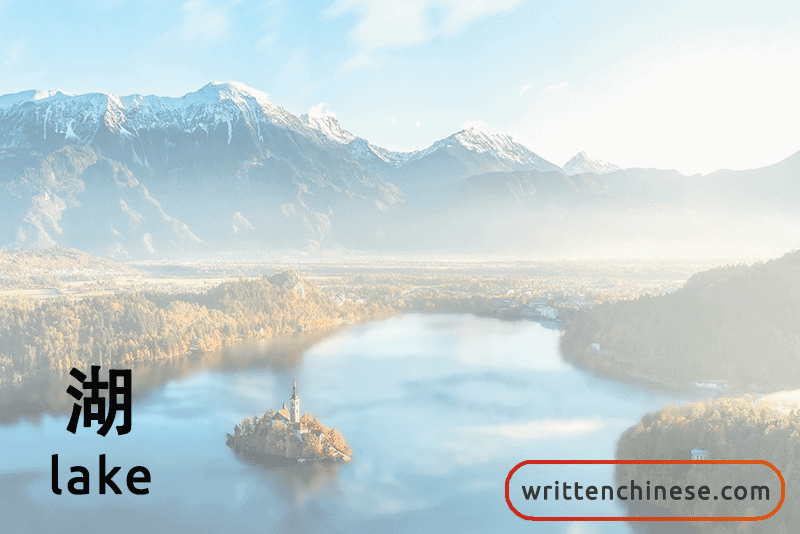
Example: 湖边的景色很美。(hú biān de jǐngsè hěn měi) The view beside the lake is very beautiful.
8. 渴 (kě) thirsty
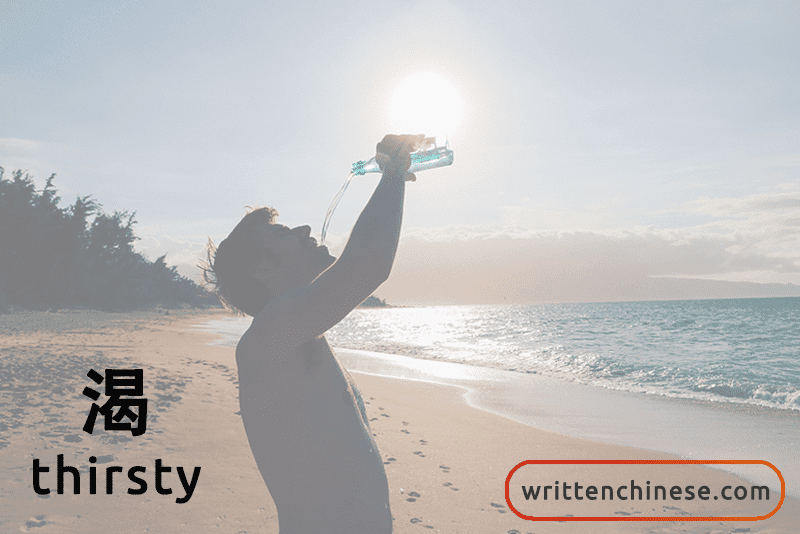
Example: 他太渴了所以一下子喝了很多水。(Tā tài kěle suǒyǐ yīxià zi hēle hěnduō shuǐ) He was very thirsty, so he drank a lot of water in one gulp.
9. 滑 (huá) to slip / to slide / smooth / slippery
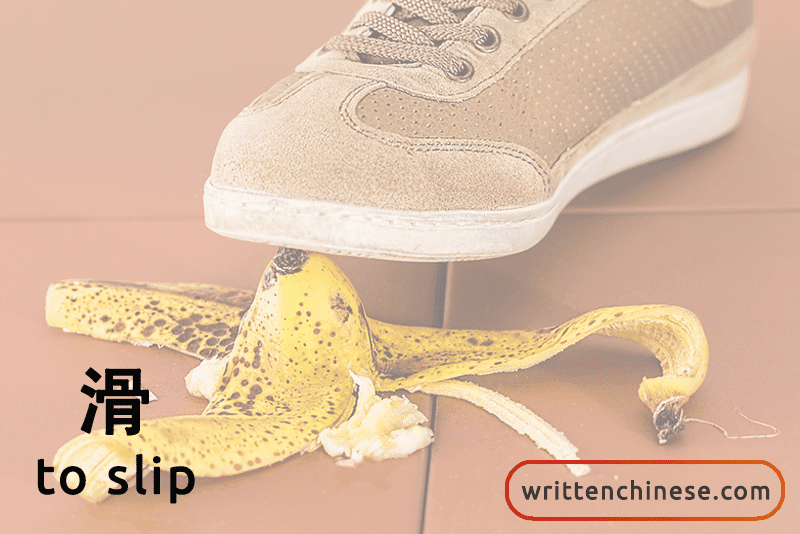
Example: 楼梯上都是水所以太滑了。(Lóutī shàng dū shì shuǐ suǒyǐ tài huále) There is too much water on the stairs, so they are very slippery.
10. 海 (hǎi) ocean / sea
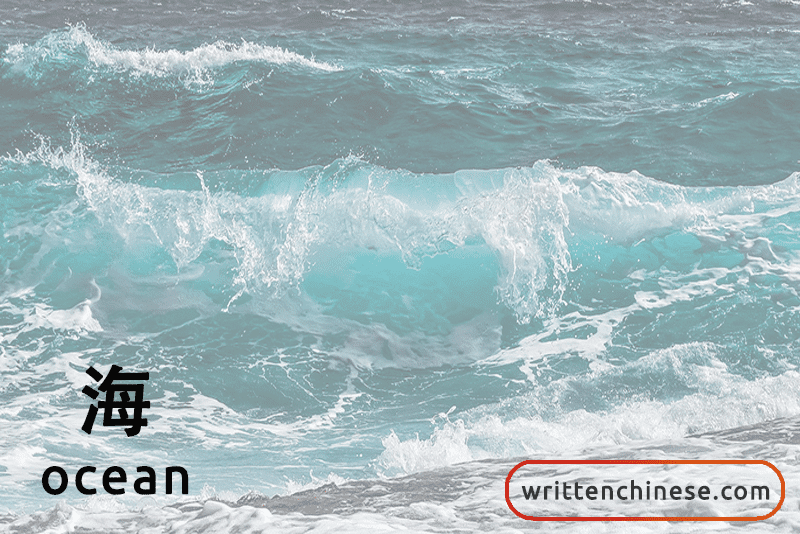
Example: 深海里有许多神秘的生物。 (Shēnhǎi li yǒu xǔduō shénmì de shēngwù) There are many mysterious creatures in the deep sea.
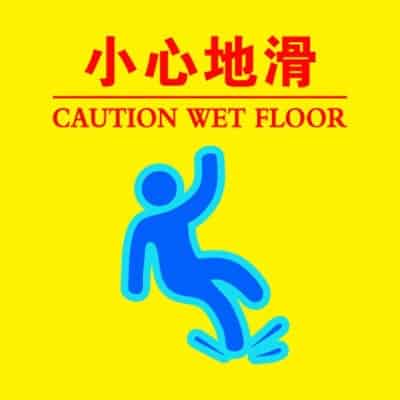
If you want to learn more about specific radicals, you can take a look at more of our ‘radical posts’.
